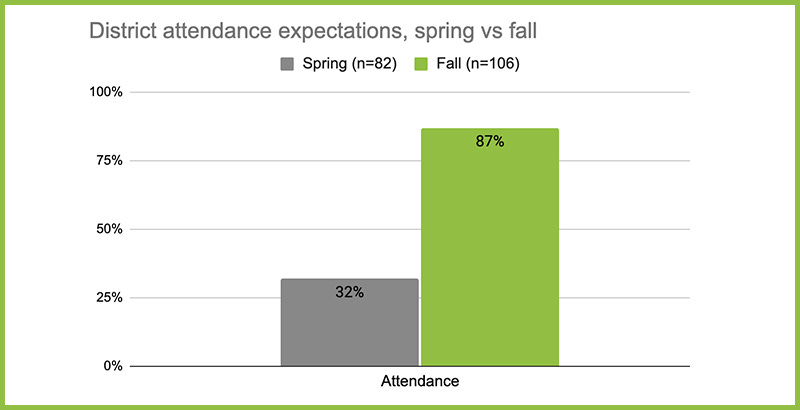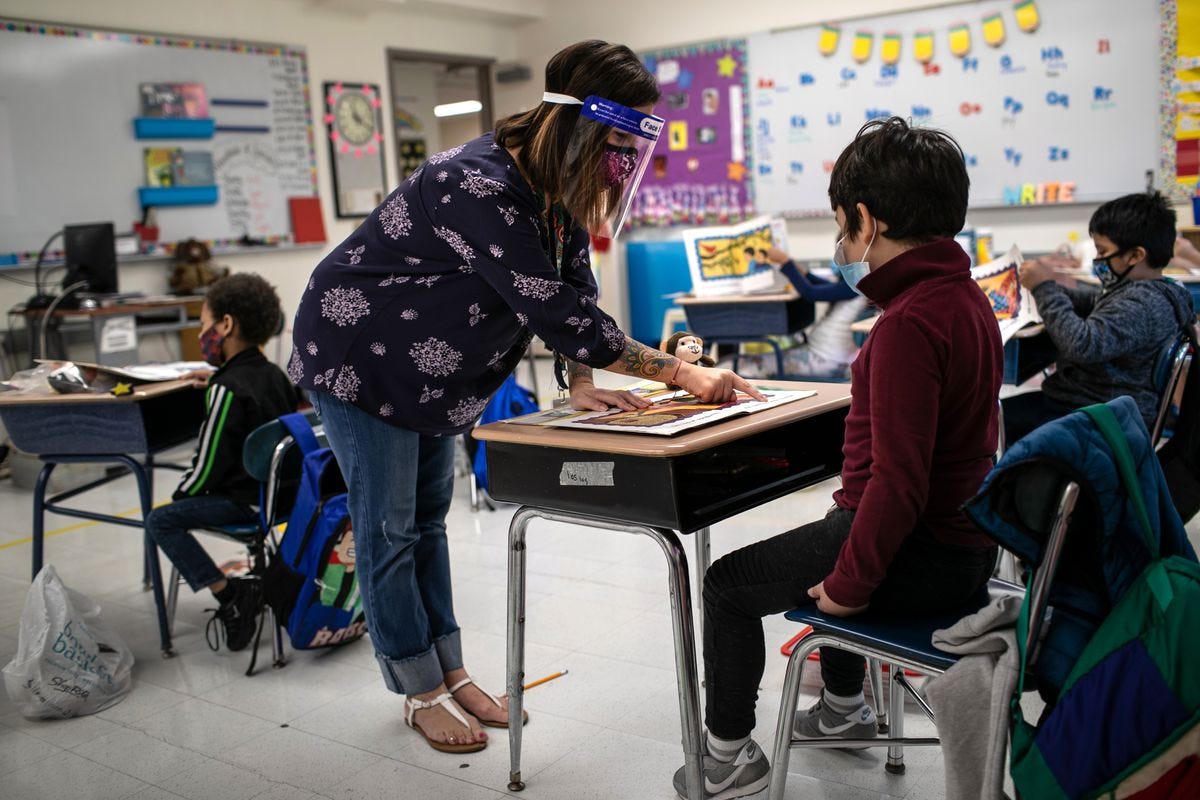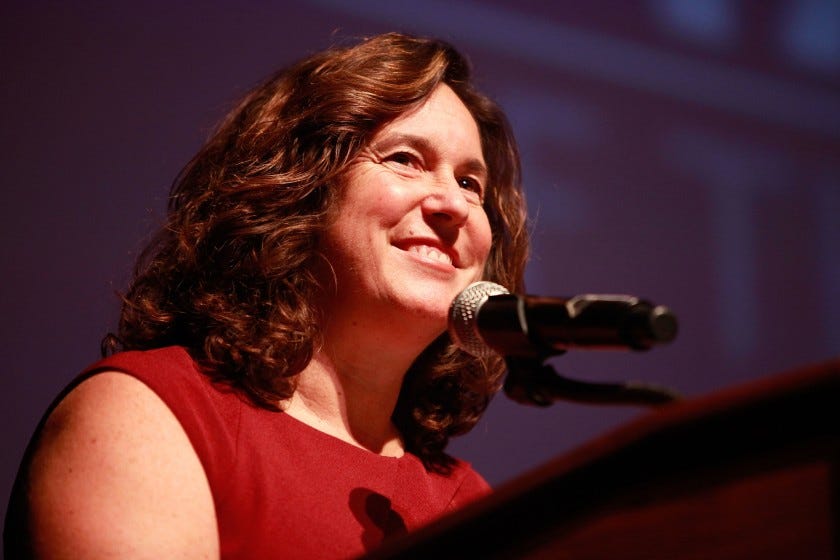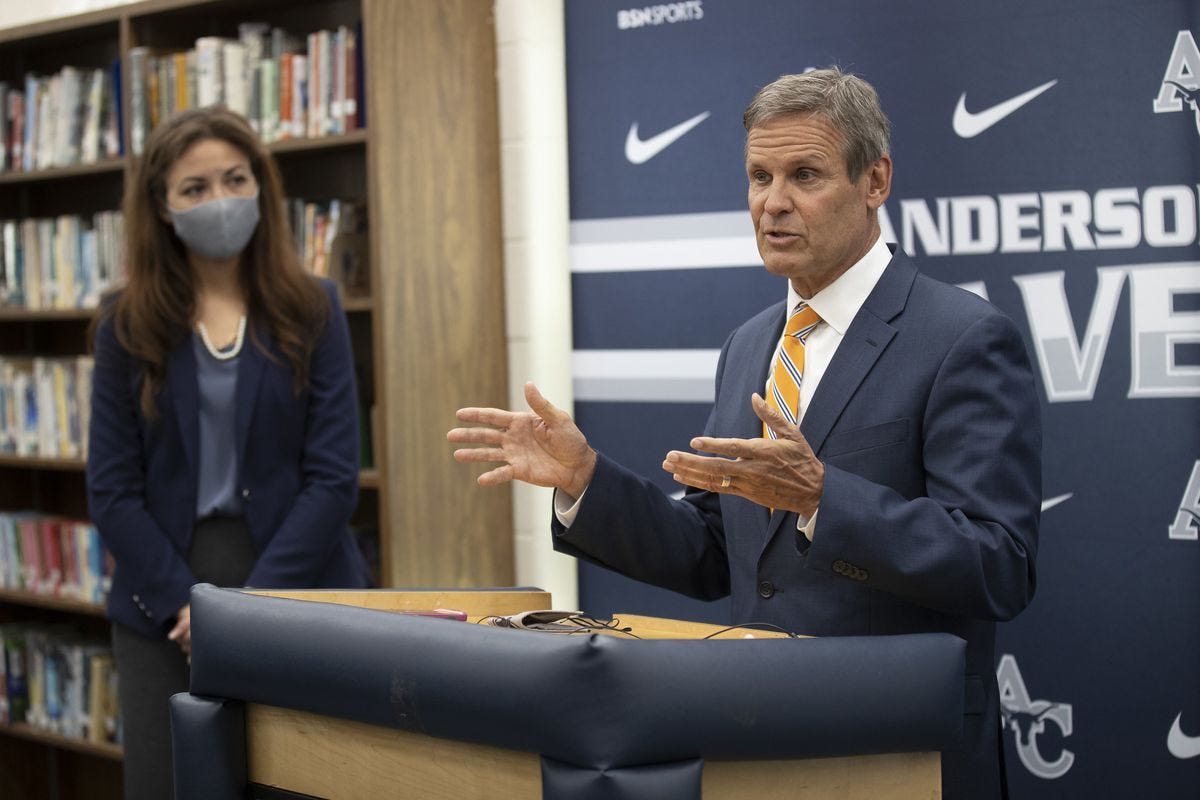I am genuinely inspired by the new build back better campaign from President-elect Biden. However, as we begin interpreting what the resulting programs will look like in the American education sector we must heed the advice of Dr. Martin Luther King, Jr. and “first honestly recognize where we are now.” In 1967 King illustrated where we were:
“[Black students] lag one to three years behind white [students], and their segregated schools receive substantially less money per student than the white schools. One-twentieth as many… [black students] as white [students] attend college. Of employed… [Black community members] seventy-five percent hold menial jobs. This is where we are.”
This is where we still are; the 2021 education landscape for Black students is not much different than King’s 1967 depiction. This week, I’ve been reflecting about Black voices (or lack there of) in my own school district and community. Over the last half-century we have failed to achieve a racial revolution in our schools. Our civic leaders and voters typically fail to put our Black communities in a position to achieve self determination. In most cases, white leaders and advocates speak on behalf of our Black, Indigenous, and Latinx communities and build a social infrastructure that aims serve only white families and communities.
Today, I am challenging my fellow advocates to absorb yourself in reflection before you speak or act. While our actions as white allies are incredibly significant we have to prioritize the impact of our words and gestures. Consider a few ways you can undo the authority of white privilege and institutionalism:
Decenter your whiteness and interpretation of your Black neighbors’ perspectives. Over the summer there was a social media movement called “share the mic,” in which white female celebrities invited Black female leaders to run their social media channels for a day. The intent of this movement is clear, we need to elevate Black female voices. Unintentionally, and unfortunately, this movement may actually reify the belief that our Black communities are not capable of building their own social infrastructure and paths to success.
Measure your voice and fragility, it may be casting an inaccurate portrayal of what your Black community needs. Authenticity, honesty, and trust are critical elements in repairing the intergenerational harm caused by white supremacy and racism. Each of these relational characteristics require time and testing. When you are in a meeting or a gathering be aware of how the conversation is stacking up — who speaks first, who speaks the loudest, who is listening to who?
Put Black leaders at the helm of civic design and decision-making. We must be intentionally centering Black perspectives by ensuring we have Black leadership among our local, state, and federal elected officials. The reality is that public policy is driven by the narratives growing out of our communities and the media, but those elected to represent our communities have the final vote. We need more Black elected officials to design a modern social infrastructure that will result in a racial revolution for America.
STUDENT ENGAGEMENT
When it comes to student engagement and attendance in 2020-2021, school and district leaders are walking a fine line between setting high expectations and providing supportive flexibility for students and families. The outcome of negotiating this tension between outdated laws and policies regarding seat time/ attendance and authentic student engagement will provide policymakers evidence for new models for measuring student engagement post-COVID.
TEACHING, LEARNING, AND ASSESSMENT
Our students, America’s future leaders, are experiencing this pandemic within layers of stress and concern (e.g. learning online, family well-being, and personal mental health). It is critical that adults across education and social systems show up and support our students’ social, emotional, and academic well-being today and into their post-COVID recovery and successes. At every decision point school district and state leaders must (a) be all-hands-on-deck, (b) maintain integrity to student-centered approaches, and (c) allow the communities most impacted by a decision to speak for themselves. Now is not the time for complacency, but for persistence and resoluteness.
How to deter cheating, test anxiety in remote learning | Ed Dive
A COVID Slide Quick Sheet Interview with Darin Nielsen, Utah Assistant Superintendent of Student Learning | The Collaborative
Teachers are not all right: How the COVID-19 pandemic is taking a toll on the nation’s teachers | CRPE
REOPENING SCHOOLS
Urban school districts across the country are stepping back from in-person learning plans they arranged in fall. Some states, even those whose initial policies for return in-person learning were very stringent, have loosened their metrics making it easier for schools to reopen. For these plans to be successful our nation, state leaders, and local jurisdiction must co-construct intergovernmental plans for vaccination, funding, and negotiating the tradeoffs that we are asking of our parents, teachers, and students for the remainder of this school year.
U-Turn — Survey of 477 Districts Shows Surge in COVID-19 Cases Is Reversing Reopening Progress In America’s Schools | The74 & CRPE
Los Angeles school board could sue California over Newsom reopening plan | CA
Little Rock School District prepares for distributing vaccine to staff | AR
COVID among teachers appear to be rising. What does that mean? | Chalkbeat
Superintendents: “We must release all doses and vaccinate teachers and school staff—immediately” | C4C
FEDERAL POLICY
As of this week we know that the US Education Department will likely be headed by education practitioners. Both the Secretary-designate, Miguel Cardona, and Deputy Secretary-designate, Cindy Marten spent years in the classroom and leading school buildings. This pragmatic background will provide a grounded approach to balance the hand of federalism in state and local education governance decisions like assessment, accountability, and funding during such costly and pressing times.
SDUSD Superintendent Cindy Marten Nominated as Deputy Secretary of Education | SDUSD
President-elect Biden Announces American Rescue Plan | Build Back Better
Biden team's multibillion-dollar school testing plan takes shape | Politico
School Advocates: Devos Leaves Behind Controversial Legacy | The74
K-12 EDUCATION: Observations on States' School Improvement Efforts | GAO
STATE AND LOCAL POLICY
State and local leaders must be bold in their fiscal planning for summer and beyond. A handful of states, like Tennessee, released these bold action plans that include massive investments in statewide tutoring and summer school. The question is whether the rest of the country will follow-suit and provide just-in-time plans for students to access on ramps to grade level learning before next year.
RI to offer free, online tutoring through partnership with Schoolhouse.world | RI
LA Schools Chief: Kids Must Get Coronavirus Vaccine to Return | LA
Education in the 2021 State of the State Addresses | FutureEd
Pre-COVID-19, states cut $600B in ed funding since Great Recession | Ed Dive
Tennessee governor unveils summer school and tutoring proposals, promises teacher pay hike |TN
Three studies highlight low COVID risk of in-person school | NC
UPCOMIG EVENTS
Tuesday, January 19 (10AM PM PST) Edunomics Lab webinar on Financial Turmoil and Public Education: Impacts of enrollment shifts and learning loss
Thursday, January 21 (3 PM EST) NASBE webinar on Acceleration vs. Remediation: Research-driven strategies for addressing learning loss
Dr. Christine M. T. Pitts serves as Manager of Research and Evaluation at Portland Public Schools. As an Oregonian, raised by a multicultural family of educators, she brings a decade of progressive strategic leadership experience, a transformative vision, and analytic skill to crafting state education policy. An educator and researcher by training, she has conducted legislation, governance, and policy analyses on a wide array of education issues using social network analysis and mixed methods research. In addition, Dr. Pitts is a facilitative leader who deeply understands and co-constructs local and national partnerships across stakeholder groups. Dr. Pitts currently coordinates between state and national policy leaders to investigate and advocate for policies that prioritize racial equity in education. Christine lives with her husband and four children in Portland, Oregon. Follow her on Twitter @cmtpitts.










